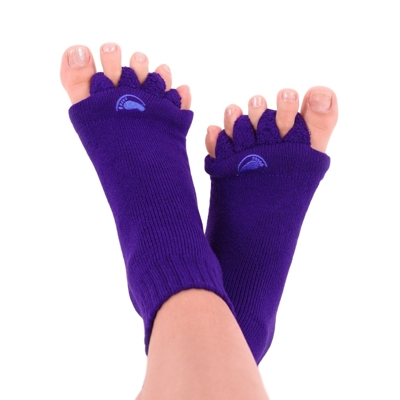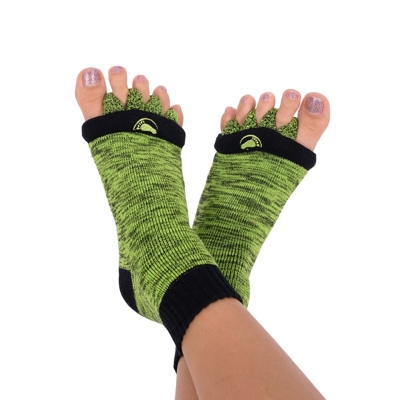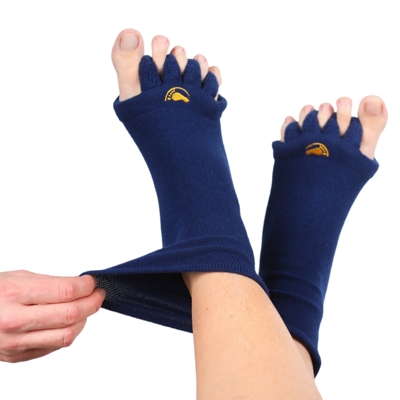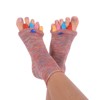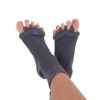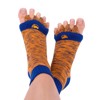Stamp out swelling in the legs: Tips to prevent swollen feet
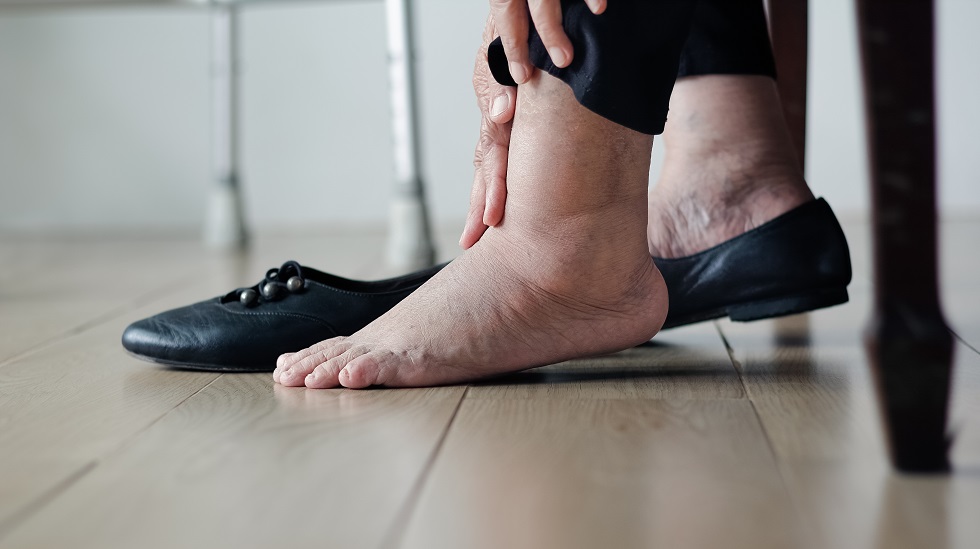 Unpleasant pressure, tingling, pain or cramps in the feet. All in all, swollen feet are no fun. How and why do our feet swell up, what should you watch out for, and what to do to relieve swollen feet? We present a few tried and tested tips and one great piece of news.
Unpleasant pressure, tingling, pain or cramps in the feet. All in all, swollen feet are no fun. How and why do our feet swell up, what should you watch out for, and what to do to relieve swollen feet? We present a few tried and tested tips and one great piece of news.
How swollen feet occur
Our feet swell up for two reasons: an inadequate vascular supply or our lymphatic system is not working correctly. In the first case, to put it simply, the blood vessels in our feet are unable to carry blood back towards the heart, which increases intravenous pressure, suppresses cell nutrition and causes fluid to accumulate in the legs and feet.
In the second case, our lymphatic system does not work as it should. Its task is to drain off waste substances to the lymph nodes, where they are disposed of en masse and then removed from the body via the bloodstream. Our lymphatic system working correctly is crucial for our immune system. If the lymphatic system is disrupted, fluids accumulate in the body and waste substances in the lymph nodes, and the body cannot keep up with getting rid of them. Besides swollen feet and other parts of your body, you can also feel tired, have swollen lymph nodes and a weakened immune system, making you more susceptible to infections and viral illnesses.
The causes of swollen feet
Now let’s take a look at why we get swollen feet. Poor vascular supply is most often caused by:
- excess strain on the feet (as a result of over-exertion or obesity, for example)
- wearing unsuitable footwear (overly narrow and rigid shoes that keep the foot in the wrong position – high heels, ankle boots, etc.)
- excessive heat
- pregnancy (excess weight, hormonal changes, etc.)
- insufficient physical activity (sedentary job, lack of physical exercise, etc.)
- other health complications (diseases of the kidneys, liver, etc.)
On the other hand, a lack of physical activity can cause the lymphatic system to not work properly. Unlike the vascular system, the lymphatic system is not driven by anything other than bodily movement. Other factors that can have an adverse impact on the lymphatic system include insufficient fluid intake and excess salt consumption, resulting in a mineral imbalance in the body.
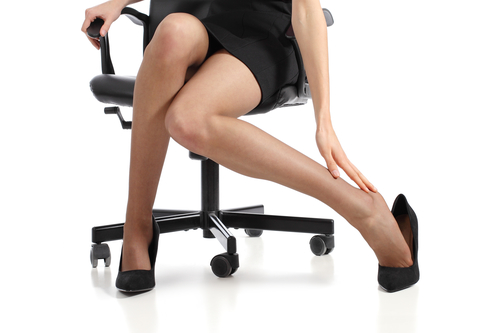
What to do about swollen feet
Besides making it difficult to put on your shoes, swollen feet are also uncomfortable because of the accompanying symptoms we mentioned in the introduction – tingling, pain, unpleasant pressure or, for example, the feeling of heavy legs. So what can you do if you already have swollen feet?
You might find that it helps to put your feet in a raised position for a while; this will improve circulation in the feet and will take some of the pressure off them. As a form of first aid you can also try spraying your feet with alternating hot and cold water.
In the long term, it should help if you consider and possibly rethink your footwear. Avoid shoes that are too tight and choose footwear to suit each activity (walking, running, sport, etc.). For more details, check out our tips on how to choose suitable footwear.
If you are experiencing problems with your lymphatic system, we recommend regular fluid intake, less salt and considering a lymphatic massage, which we also write about in our article Suffering from swollen feet or varicose veins? Try a lymphatic massage.
Swollen feet and pain connected with pregnancy is a whole chapter in itself. Even so, there are ways to achieve some relief. You can find these in our article entitled What do to about swollen feet and leg pain during pregnancy.
Lots of people wonder whether there are any medical socks available for swollen feet. In general, we recommend wearing Foot Alignment Socks for swollen feet, as they guarantee a pleasant sense of relief, improved circulation and also stretch the muscles of the foot. However, from experience we know that the top cuff of the socks can pinch a little when your feet are swollen. So, we also offer Extra Stretch Foot Alignment Socks with a loose cuff, which are perfect for swollen feet.
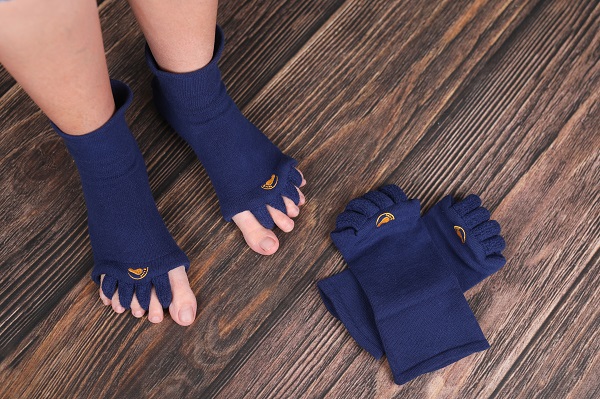
If swollen feet are not dealt with
Swollen feet are a sign of what is generally more of a long-term problem. To rid yourself of swollen feet for good, you have to get to the root of the problem. If you are pregnant, ‘all’ you need to do, as it were, is to give birth and then gradually get back to your starting weight. With the other causes, however, it might not be so easy.
However, if you don’t do something about swollen feet and their causes for a long time, it could lead to other complications, such as varicose veins, fallen arches or hallux valgus, for example. These ailments can also make life very unpleasant in their later stages. So, you should also bear prevention in mind when taking care of your feet. After all, they do carry you every day.


